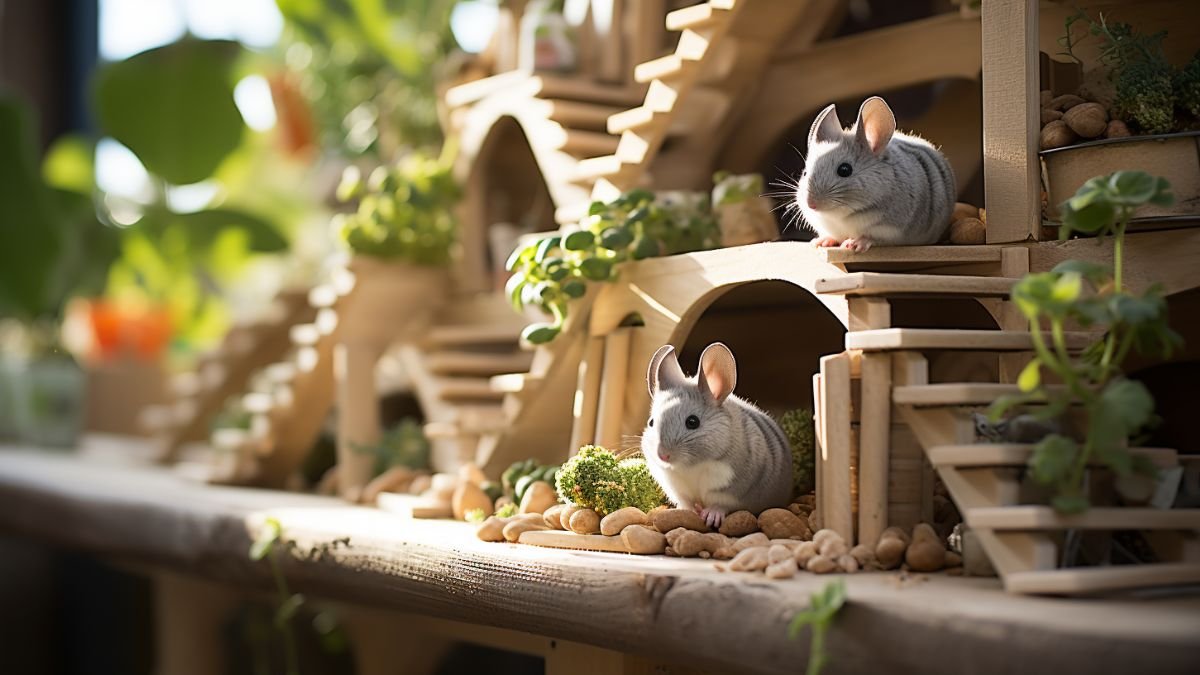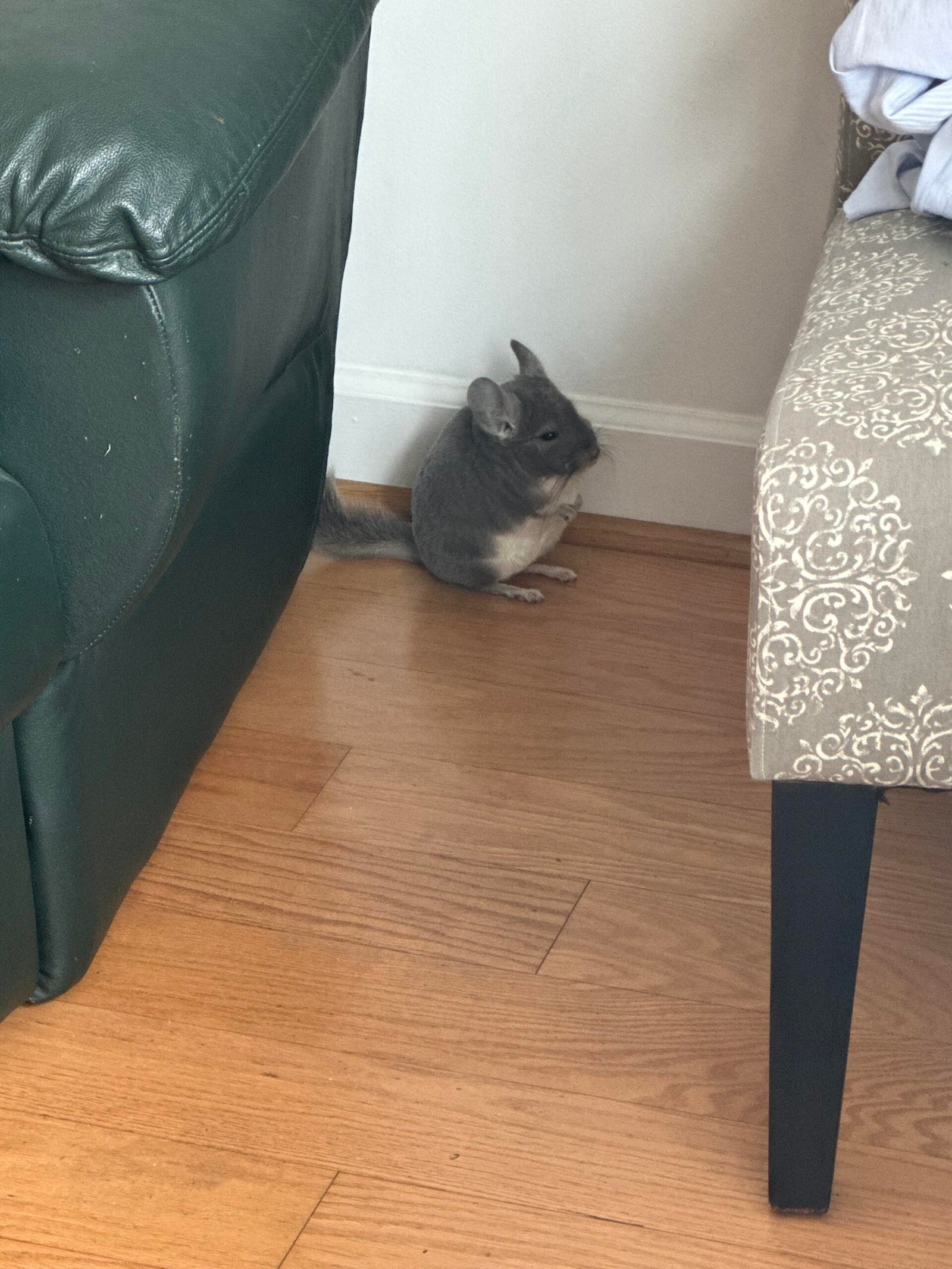
Introduction
If you’ve heard your chinchilla make a sharp, repetitive noise that sounds like barking, you’re not alone. Many owners are surprised to learn that chinchillas have a wide range of vocalizations — and barking is one of the most common.
So, why is your chinchilla barking?
In most cases, barking is a form of communication — it can mean fear, warning, stress, excitement, or even annoyance. To understand your pet’s needs, it’s essential to know what triggers barking and how to respond.
What Does a Chinchilla Bark Sound Like?
- Loud, sharp, repetitive “eeek” or “chirp-bark” sounds.
- Usually delivered in bursts — sometimes at night.
- Can last for seconds or minutes depending on the trigger.
Common Reasons Why Chinchillas Bark
- Fear or Alarm
- Barking is often a warning to alert others of danger.
- Could be triggered by sudden noises, predators (cats, dogs), or unfamiliar people.
👉 See our guide on do chinchillas get along with cats.
- Annoyance or Stress
- They may bark when their sleep is disturbed or if handled too much.
- Stress from overheating? See do chinchillas need air conditioning.
- Communication with Other Chinchillas
- In multi-chinchilla households, barking can be social communication.
- Often used to establish boundaries or warn cage mates.
- Nighttime Activity
- Chinchillas are crepuscular (active at dusk/dawn).
- Barking at night may be part of normal activity or reaction to nighttime noises.
- Pain or Illness
- Persistent barking without obvious triggers may signal discomfort.
- Always consult an exotic vet.
How to Respond When Your Chinchilla Barks
- Stay calm — barking doesn’t always mean danger.
- Check the environment (noise, light, other pets).
- Give space if your chinchilla seems stressed.
- Offer safe hideouts like chinchilla hideout houses.
- Monitor health — if barking is excessive, visit a vet.
Tips to Reduce Stress Barking
- Keep cage in a quiet, stable environment.
- Maintain comfortable temperature (60–70°F).
- Provide enrichment: chinchilla wheels, chew toys, foraging toys.
- Offer a balanced diet with pellets and hay.
👉 Affiliate pick: Kaytee Chinchilla Hideout (bold green) for reducing stress.
🛒 Product Comparison Table: Comfort & Stress Relief
| Product | Key Features | Best For |
|---|---|---|
| Kaytee Small Animal Hideout | Cozy, washable, reduces stress and barking triggers. | Safe sleeping area. |
| Lixit Glass Water Bottle | Chew-proof, always provides fresh water. | Comfort and hydration. |
| Marble Cooling Stone | Keeps environment cool, reduces stress barking. | Hot climates, summer months. |
Quick Facts Infographic Content
- 🐭 Why do they bark? – Communication, fear, stress, or warning.
- 🌙 When does it happen? – Often at night or when startled.
- 🏡 How to help? – Quiet environment, hideouts, enrichment.
- ❌ Don’t punish – Barking is natural behavior.
- ✅ Do monitor – Excessive barking = possible illness.
FAQs
Why does my chinchilla bark at night?
They’re most active at dusk/dawn, so barking is common then.
Should I worry if my chinchilla barks a lot?
Occasional barking is normal. Persistent barking may signal stress or illness.
Can chinchillas bark out of happiness?
Usually no — barking is more often stress or communication.
Conclusion
So, why is your chinchilla barking?
It’s their way of communicating — usually fear, warning, or stress. Occasional barking is natural, but frequent or unusual barking deserves attention. By creating a calm environment and offering safe hideouts, you’ll help your chinchilla feel secure and reduce barking.






